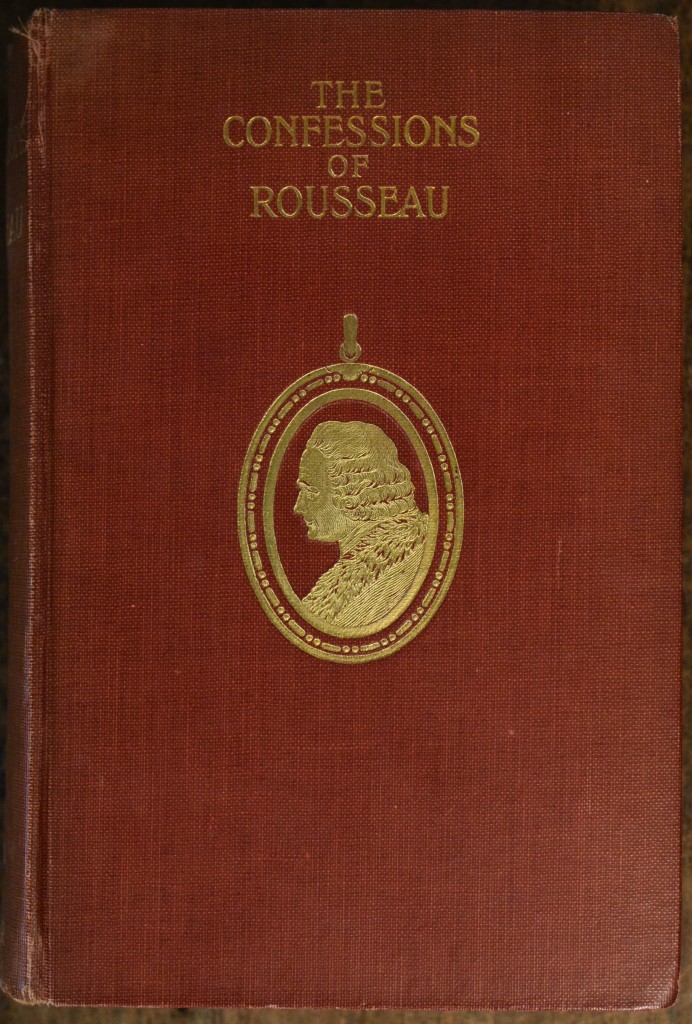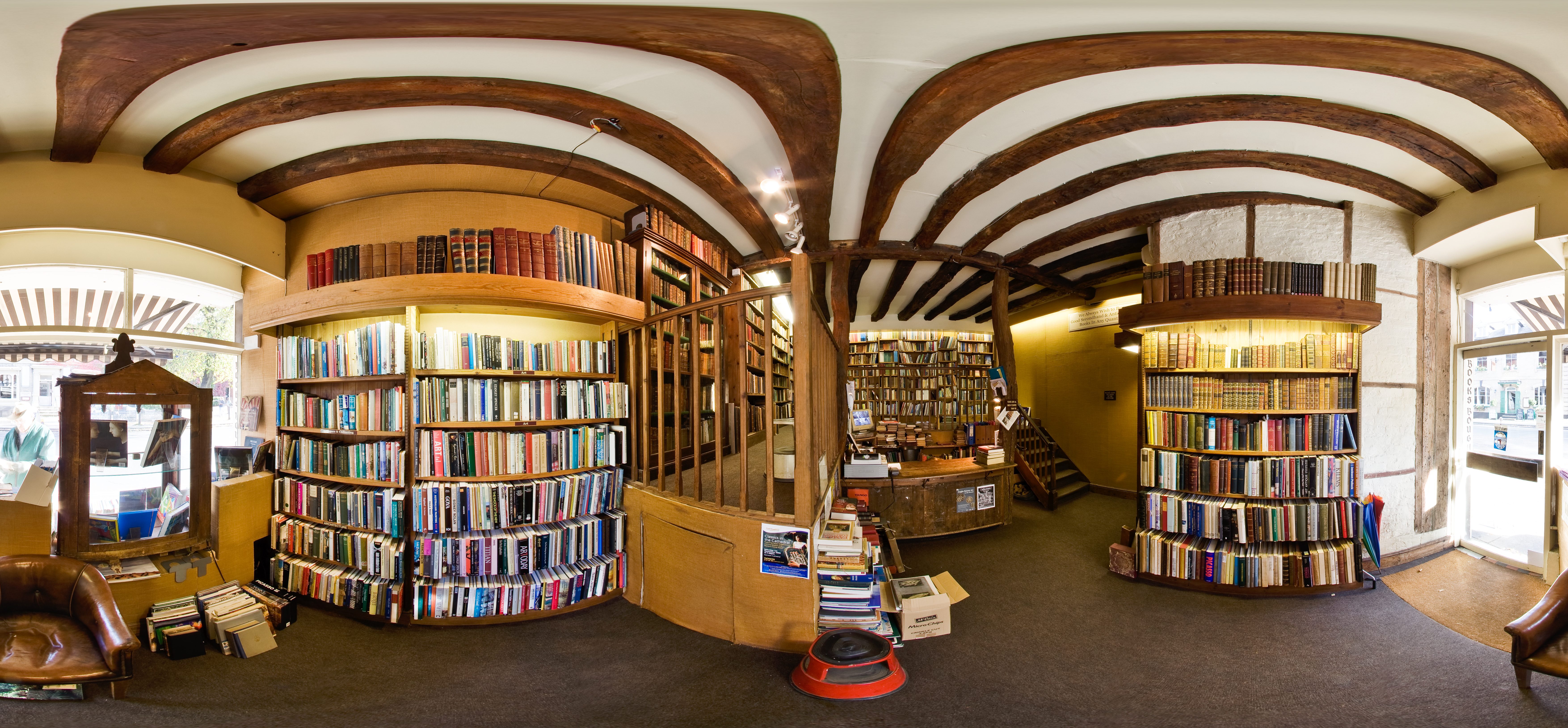Volume 1, Number 18.

This engraving is after an oil painting by Charles Desire Hue entitled The Laboratory, showing Jean-Jaques Rousseau and Madame de Warens dancing about in a kitchen. The painting has alternatively been titled as Merriment, painted in 1869 and a later version in 1877, of the same scene is called Flirtation in the Kitchen, and yet another version is called The Games of Love: A Pair, the former sold at Sothebys (London) in April 1998 and the latter was sold at Sothebys of New York in 2002 for $16,370). Merriment sold in March 2015. It is not entirely clear that they are different paintings or the same artwork with new title

The Confessions published in 1782 The scene on the front cover of The Days’ doings is an allusion to the relationship between Rousseau and his patron and object of infatuation, Madame de Warens who is portrayed by Rousseau as a dabbler in herbalism with a fondness for creating her own medicines (Confessions, books 3 and 5).
It should be pointed out that in book five he recalls his inability to learn the art of dancing on account of his corns
JEAN JACQUES AND MADAME WAHRENS
“I wonder who amongst us, not even excepting the crisp, idiomatic, and very retiring Lord Mayor Besley, would dare to do what Jean Jacques Rousseau did. Apologias we have, confidences we have, autobiographies we have, but how few confessions! That truth is far stranger than fiction, Matrimonial Causes show us. That it is far more interesting, our daily papers prove.
That portion of his life which Jean Jacques spent in the company of the morally virtuous sinner, Madame Wahrens, forms, perhaps, the most charming chapters of all the Confessions. It is impossible to chide her, equally impossible not to respect her, for all her backslidings. For she is kindness itself, and displays so happy and genial a temperament, as would thaw Brutus himself into forgiveness. In her laboratory, as the painting by C. Hue shows, she was as full of fun as science, and would pursue Jean Jacques, and make him taste the nauseous drugs she prepared. Roussseau in vain resisted her: and there would be few of us, including the whole bench of Middlesex magistrates, with worthy burly Bodkin at their head, who would have fared much better at her hands.”
Signs of the Zodiac
From “Josh Billing’s Allimax.”
VII. – THE BRINY CODFISH
The codfish is the fruit ov the oshun, which accounts for their being so salt. They are good eating for a wet day: they are better than an umbreller to keep a man dry. They want a good deal ov freshning before they are eaten, and want freshning a good deal afterwards. If i can have plenty ov codfish for breakfast, i can generally manage tew make the other two meals out ov cold water.
IX. – THE READY ROOSTER
Roosters are the pugilists among birds, and having no suitable shoulder tew strike from, they strike from the heel. When a rooster gits whipped the hens all march off with the other rooster if he aint haff so big, or so hansum. It is pluck that wins a hen. Roosters, az a class, wont do enny household work; yu kant git a rooster tew pay enny attenshun tew a yung one. They spend most ov their time in crowing and strutting, and once in a while they find a worm, which they make a grate fuss over, calling their wives up from a distance, apparently to treat them; but jist az the hens get thare, this elegant cuss bends over, and gobbles up the worm. Jist like a man for all the world!”
XII. – THE THOUGHTFUL FOX.
The Fox is a literary bird; he was a genius long before akedemick honours flourished; he waz a poet, skoller, and sage, before the days ov Homer and Herodotus; and, in our times, he iz the Ben Butler of diplomacy, and the Brigham Yung ov matrimonial ethicks. The fox has no moral honesty, but he haz got a grate supply of politikal honesty. If another fox in hiz parish wants a good phatt goose, he will work hard tew get him the goose, and having cleaned the meat all oph from the suburbs ov the goose, giv his politikal friend the bones, telling him, with a smile in hiz eye, “that everything is lovey and the goose hangs hi.”
The above extracts from Mr Billing’s Allimax are typical of the style of the work, with use of eccentric spelling and vernacular language. Allimax was following in the wake of many comic or pastiche almanacks in North America with a lineage that might be traced back to Poor Robins Almanac of the mid 17th century which started life in Suffolk, England but then continued to be published in New England. Almanacs were very popular throughout the 18th and 19th centuries in the USA as well as Europe (and some continue to this day). These below are late 19th and early 20th century almanacs from Norfolk

The satire in Allimax has dulled with time but the sarcasm employed can be read in such lines as “the Brigham Young ov matrimonial ethicks.” if the reader understands that Brigham Young, the President of the Mormon church or Church of Jesus Christ of the Latter-day Saints at time of the Days’ Doings, was an ardent polygamist with 55 wives over his lifetime. Benjamin Butler practised diplomacy in a way that Donald Trump would approve of. During the civil war he suspended the acting British Consul at New Orleans, George Coppell, whom he accused of supporting the confederacy. He also seized a substantial amount of money deposited with the Dutch Consul. The subsequent complaints from various consuls caused President Lincoln to replace him as governor despite his popularity with “the base”.
Before damming Governor Butler for the above and some other facets of his personality such as anti-semitism and press censorship, it should be remembered that he was co-sponsor of the Civil Rights act, passed in 1875.
The Days’ Doings
This story is from page 10, column 2.
At Bow-street, Arthur Woodham Lamb, a barrister has been charged on a warrant with stealing several books from Lincoln’s Inn Library. Mr Lamb, though not a member of the Inn, had access by courtsey (sic) to the library, and it would seem from the evidence of Mr. Nicholson, the sub-librarian, that on the 29th July, the following books were missing from the rooms :- “Fisher’s Digest,” five volumes; “Shelford on railways,” two volumes; “Addison on Torts,” “Oke’s Magisterial Synopsis,” “Roscoe’s Nisi Prius Evidence.” “Chitty’s Precedence (sic) of Pleadings,” “Starkie on Libel.” By the prosecution of inquiries among booksellers, Mr. Nicholson ascertained that Mr. Turner had purchased from a gentleman whom he believed to be a solicitor, and who gave the name of Kinglake, “Fisher’s Digest,” and “Shelford on Railways, ” for £6. 10s. The cost price of “Fisher’s Digest” when new was £12. 12s. and “Shelford on Railways” £3. 3s. ; but it was explained that 25 per cent. was taken off in the re-purchase of uncut copies.

After Mr. Nicholson had called and seen the books, and identified them, Mr Lamb was found, and was recognised by Mr. Turner as the man who had sold him the books. Subsequently a detective was sent to the prisoner’s address. On his arrival, and stating his business, prisoner’s wife said to her husband, “Why, you have never been there, have you?” he replied, “Yes, twice.” Sir Thomas Henry granted a remand for a week.
Some of the titles that Mr. Lamb was accused of stealing will be familiar to modern day law practitioners as being part of the 19th century substrate upon which our 21st century law sits and evolves. Most of the titles are now online at google and also available as “print-on-demand”.

